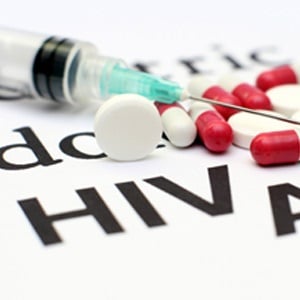
HIV-negative heterosexuals who take drugs that protect them from contracting the AIDS virus from their HIV-positive partners don't engage in more risky sexual behaviours, according to a new study.
Researchers from the University of Washington in Seattle found that knowing they are protected against HIV transmission doesn't change how these people behave sexually or lead them to have sex without a condom more often.
The study is published in the journal The Lancet Infectious Diseases.
"Evidence for the effectiveness of new HIV-prevention strategies, including pre-exposure prophylaxis, has spurred optimism that the global HIV epidemic might be reversed," Dr Jared Baeten said in a journal news release. "However, an important question is whether HIV-negative partners who know they're protected by prophylaxis will compensate for this by increasing their sexual risk-taking, such as through increasing their levels of unprotected sex."
In conducting the study, an international team of researchers led by Baeten examined findings from the 2011 Partners PrEP study, which revealed that a preventive drug regimen could protect HIV-negative men and women from contracting the virus from their HIV-positive partner.
The researchers examined information on more than 3 000 people for up to one year before and after taking drugs to prevent the transmission of HIV, the virus that causes AIDS. The participants were counselled on pregnancy testing and how to reduce their risk for sexually transmitted infections, such as gonorrhea, chlamydia, and trichomoniasis.
Even before the participants learned the results of the research, which established the protective effects of the drugs, they were engaging in unprotected sex less often, the study authors found. The researchers concluded that the risk counselling the participants had received may have been effective.
After the participants knew the drugs they were taking were shown to provide protection against HIV transmission, the investigators found no significant difference in the level of unprotected sex taking place between partners.
There was, however, a slight increase in the frequency of unprotected sex outside the relationship. The researchers said there was no increase in rates of sexually transmitted infections or pregnancy.
"The results provide encouraging evidence that behavioural changes as a result of pre-exposure prophylaxis might not undermine its strong HIV prevention and public-health benefits," Baeten said.
More information
The U.S. Centres for Disease Control and Prevention has more about HIV transmission.




 Publications
Publications
 Partners
Partners











